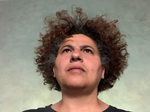Why narratives matter? How much control do we have over them? Why can there be different narratives to a story or an event? Is there a better narrative than the other? more true perhaps or more real?
I’ve been thinking about narratives for a while, how they come to be and how different narratives can come out of the same set of events.
Take any religion for example, each sect has a narrative that takes its followers through and claims it to be the truth. Nations have been doing the same for a while, each sewing a narrative that takes several historical events and narrates a story to bring its people together under a flag and political order. Political leaders at war generate different narratives to justify aggression in the name of defense, freedom or imaginary historical claim. In business, all brands go through a process of narrating a story to its large customer base. And so on.
As humans, we’ve been busy creating narratives for 10s of thousands of years now, to a point where it can be challenging to separate fiction from nonfiction.
Subsequently, some of us find it more sensible to extract our own narratives to many of those collective stories especially ones we find conflict in, partly in an effort to better connect but for the most part, we seek to come to our own truth. I tend to be most interested in those individual narratives even if they don’t connect directly with me, I find the mental effort alone to be worthy of respect and admiration.
All those narratives holding significance, I’m most curious about the ones we create ourselves around our own life events. Around success and failure, about decisions we’ve made, about love, loss, about struggle, discovery, joy and making connections.
At times I struggle after a significant event or an experience to find the narrative that I should carry forward, at times I can’t find peace until I think I came up with one that is the most “real”. Sometimes the struggle lasts until I can have it validated by the persons who experienced the life event with me. Other times, I won’t care, I feel I am entitled to come with the narrative I find most peace with, one that connects best with my experience.
For a while there, chronological timelines made me trust a narrative over another, what happened before what and what came after which made all the sense to me. But lately, I’ve been relating more to the context around me and others and thus a nonlinear take on things that could better explain the stories involving me. Helping me do that, is an internal voice I developed, I call it “the observer”, an attempt to push myself out of my current emotional state and attachments to deliver my voice of reason. My observer ends up narrating the story instead, bringing an empathetic and peaceful narrative for me to own.
All with the knowledge that out of any control of mine, time ends up writing a narrative on its own and forces it upon me to eventually own and find peace with.





